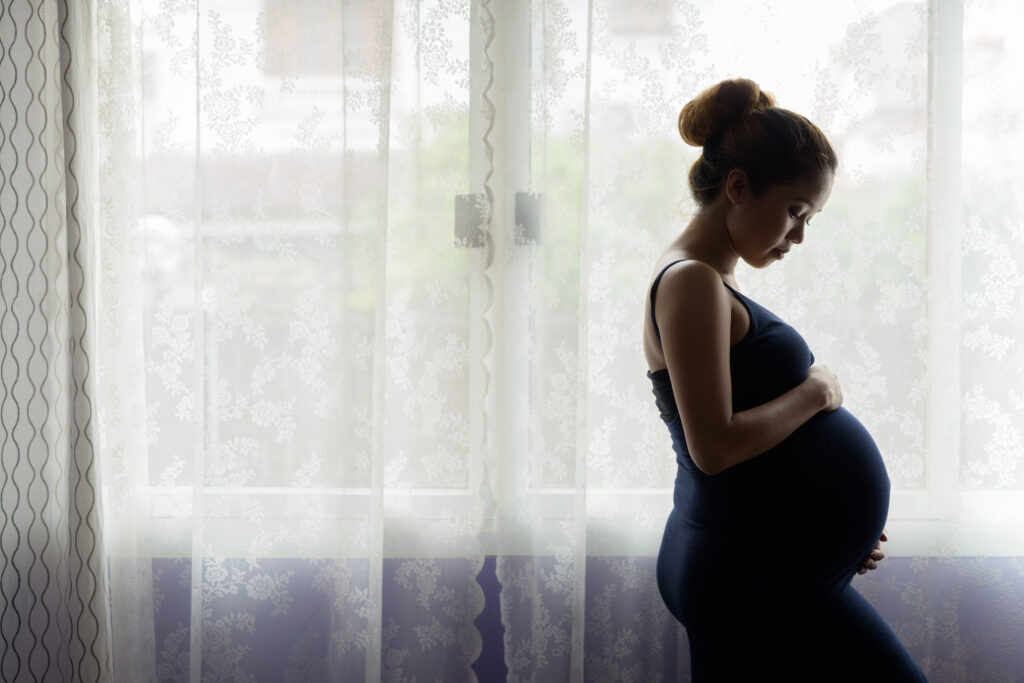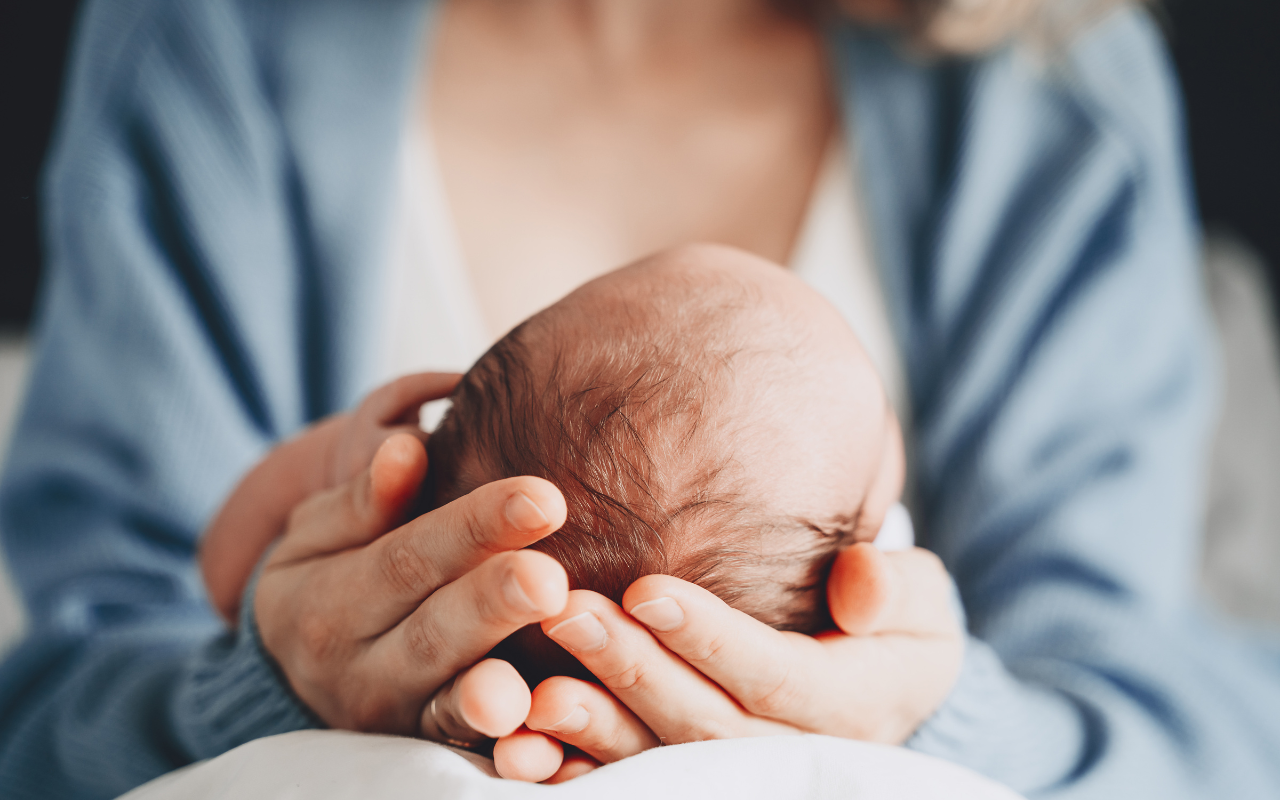Two years after the NSW Select Committee on Birth Trauma, prominent doulas say the freebirth movement is acting in a cult-like manner toward women afraid of the medical system. While doulas and midwives alike say that women should have the right to choose their preferred birth, the maternity system is not doing enough to support them to do so.
“Currently in Australia, one-third of women experience birth trauma. In some cases of freebirth, births and deaths are not officially recorded.”
Becca Whitehead spoke with a prominent doula, and the Chief Midwife at Australian College of Midwives, for InSight+.
When talking about the freebirth movement and reproductive services, most parties reference COVID-19 as the point where things changed.
For some, the COVID-19 pandemic was when we began to acknowledge the trauma of birthing – something that isn’t often talked about.
Angela Gallo, many women know as Angel Phoenix, has been a doula for many years, and ran an online course training doulas. When the freebirth movement became bigger, Gallo found that she had trained doulas over whom she had no control. She put an end to her online course.
Earlier this year, two women were charged with manslaughter over the death of a baby born at a home on the New South Wales Mid North Coast in 2022.
Police allege the two women — one a former midwife not currently on the register at the time of the birth, and another with no medical qualifications — were at a property at Karangi, north-west of Coffs Harbour, on 11 September 2022, when a woman gave birth.
“The big thing for me, why I’m now taking a stance, is that things are now so out of hand that I feel like if I don’t say something, it’s just going to get worse,” said Gallo.
“I am not trying to take away anyone’s choice. I’m trying to address why and how this has turned into some sort of cult,” she said.
Women have reported being members of online freebirth groups, and some who have sought professional help with birth have been denied access to groups afterward.
Gallo says she understands why women might choose freebirth groups.
“I’m not angry at the freebirth movement, because from a compassionate lens, I can see they’re terrified. They’re reacting like wounded animals, because most of these women have had horrific experiences, and they’re terrified. So they’d rather put themselves and their babies in danger than walk into a system that statistically speaking is likely to do them harm,” says Gallo.
“You’re going to punish women for that? It’s like having an abuser and then getting angry at the woman when she reacts to the abuser. That wouldn’t make any sense,” she said.
Gallo has contributed to the ABC’s reporting on birth and freebirth.
“My concern is that what the medical system is doing in response to freebirth is, ‘Let’s make freebirth illegal,’ instead of, ‘Let’s overhaul the system to make women feel safe birthing in the system’,” she said.
“In a perfect world, I would like to see an overhaul of the entire reproductive health system from a trauma-informed lens that doesn’t other, disregard, discredit or gaslight the person coming in,” she said.
“The reality is, however, you have a system that’s overstretched, overworked, under-resourced, where people are desensitised, complacent and exhausted.”
According to Birth Trauma Australia, one-third of birthing parents in Australia can experience birth trauma.

Midwives say under-resourced system needs change
Alison Weatherstone is Chief Midwife at the Australian College of Midwives (ACM), and the co-chair of the International Confederation of Midwives Global Chief Midwife Community of Practice.
“Looking at issues like freebirth is important, and freebirth is definitely an emerging issue and priority,” she said.
“ACM have run webinar panels on freebirth, involving consumers that have had a freebirth. We’ve had freebirth advocates, doulas, midwives, doctors, all come with a position and comment. We’re hearing that women who choose a freebirth and have the right information to make that decision are usually very committed to what they want,” she said.
Ms Weatherstone said that the ACM supports home birth and not freebirth, and that the difference is important.
“In a home birth situation, you have a suitably qualified midwife or doctor present. They’ve got the education and tools to make a decision to escalate care [ie, go the hospital, for example],” she said.
“ACM strongly supports birth by a known midwife that is regulated and educated to provide professional support, so ACM doesn’t advocate for freebirth. But we do respect a woman’s choice to choose, and so if a woman chooses freebirth and then requires care, they should receive non-judgmental care,” she said.
“There are strong advances happening with midwifery leadership. Midwifery has increased in visibility because of things like the New South Wales Birth Trauma Inquiry, which has raised the profile of women’s experience during birth and pregnancy,” said Ms Weatherstone.
In its submission to the Inquiry, the ACM advocates for every woman to have access to a known midwife and continuity of midwifery care, alongside urgent structural reform, trauma-informed models, and the integration of privately practising midwives to reduce birth trauma and improve outcomes.
Ms Weatherstone acknowledges that while birth is generally safe in Australia, there can be poor or unexpected outcomes in any environment.
“Every day in hospitals there are also poor outcomes for women and babies. But with freebirth, there are different contributing factors. For every … maternal death or neonatal death that happens during a home birth, or freebirth, there will be x amount that happens in a hospital that never makes the news,” she said.
Ms Weatherstone said that birthing is changing, and that people are speaking up for different needs.
“Consumers have different expectations than they would have had 20–30 years ago … there’s so much more social media now [that] people are getting information that’s not necessarily evidence-based,” said Ms Weatherstone.
“There is also a cohort of women that are choosing free birth because they can’t access the model of care they want. They may have risk factors that may exclude them, there’s just not the service in their area, or they’ve had a previous traumatic event and don’t want to go back to the hospital,” she said.
Ms Weatherstone said that access to privately practising midwives is reduced across Australia, and access to publicly funded home birth is not universal.
“I think the general community understanding is that, in a hospital environment, you’ve got ready access to medical equipment, and a team of health professionals in the event that an emergency happens,” said Ms Weatherstone.
“In a homebirth situation, where you have got a suitably skilled and qualified midwives or doctor present, then they’ve also got the education and equipment to make an assessment and a decision with the woman to escalate care,” she said.
“In freebirth situations, often that can be a delayed response, because there’s no qualified health professional there that knows what to look out for,” said Ms Weatherstone.
The ACM said that a homebirth with a private midwife in Australia typically costs between $5000 and $8000, including antenatal and postnatal care. There may be private or Medicare rebates that apply. The ACM said that publicly funded homebirth should be free to access, and is advocating for a Medicare item for homebirth.
If you, or someone you know, needs help:
Pregnancy, Birth and Baby (advice from maternal child health nurses) on 1800 882 436
Sands (miscarriage, stillbirth and newborn death support) on 1300 072 637
PANDA (Perinatal Anxiety and Depression Australia) on 1300 726 306
Bears of Hope (infant loss support for families) on 1300 114 673
Lifeline on 13 11 14
Beyond Blue on 1300 22 46 36
Subscribe to the free InSight+ weekly newsletter here. It is available to all readers, not just registered medical practitioners.

 more_vert
more_vert
Not sure why anyone would want to go back to the high maternal and perinatal mortality which existed prior to modern obstetric care in hospitals. And who is advocating for the health and wellbeing of the baby here ? To some degree, like vaccination, modern obstetrics is a victim of its own success with mothers not having a strong awareness of the risks of childbirth. The goal must be safe delivery with healthy mother and baby, the mother’s “experience” must be secondary.
The myth of the wonderful dutch system remains, but when my dutch granddaughter was born, and her mother laboured at home, and didn’t progress, and became exhausted, my son and daughter in law had to ring around hospitals to find someone who would take them. There was no continuity and no ambulance to take them there.
CChildbirth is often traumatic! Hundred years ago, maternal mortality was 600 per 100,000 women it is now 4.8 per 100,000. Despite this, women are increasingly reporting that they have been traumatised by childbirth in hospitals. In addition to hospital related factors the overall decrease in resilience in young persons, the increasing rate of mental health problems in women during pregnancy and the mismatch between their unrealistic expectations of a smooth and uncomplicated childbirth and the reality of childbirth are likely to be contributory factors. Better screening and management of mental health problems during pregnancy and counselling during antenatal care that childbirth is unpredictable and that lifesaving decisions may need to be made without informed consent and or detailed explanations, may be helpful. Home birth under the care of a qualified and experienced midwife with access to hospital transfer/back up is a good option for low-risk pregnancies, but again women need to be counselled that childbirth can be unpredictable and that and or their baby may need to be hospitalised. The free birth movement is like anti vaccine activism. it is based on ignorance of the high maternal mortality rate associated with freebirth.
while I agree that hospital birth can be traumatic, I seriously doubt that for any serious event in free birthing you find the same in hospital – if this would be true we would still have the same maternal and neonatal death as before hospitals were available and this is clearly not the case. But I do think that people no longer believe facts and prefer a romanticized version of nature.The real crime is that no one tells them what can go wrong and how quickly. if you only hear wonderful spiritual stories this is what you believe will happen . But I doubt that the victims of freebirthing will speak up loudly about the risks and the outcome. The difference to earlier times are that tribal people KNEW that birth was a risky life and death situation and when the unspeakable happened they mourned and accepted nature’s outcome. there IS a reason why death rates have fallen dramatically with medical care. Lots of room to improve the hospital care if there is funding/ money. If not I still think a birth trauma might be preferable than a dead child. and my exprience is that midwifes who offer home birth are often super against hospital ( or medical ) care. the netherlands have a great system where you can try a home birth at home, an ambulance is at the door IN CASE an urgent transport is needed. Cant see this being funded here and no solution for rural area though. I wonder how many women and babies will need to be seriously injured or die before the tide turns around. And my comment is anonymous because any uncomfortable opinion nowadays triggers trolls.